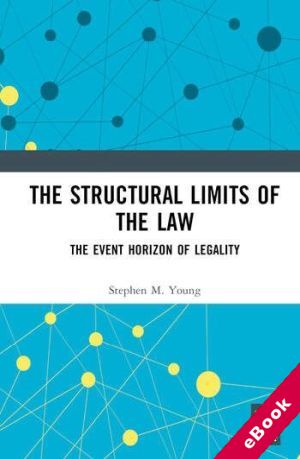
The device(s) you use to access the eBook content must be authorized with an Adobe ID before you download the product otherwise it will fail to register correctly.
For further information see https://www.wildy.com/ebook-formats
Once the order is confirmed an automated e-mail will be sent to you to allow you to download the eBook.
All eBooks are supplied firm sale and cannot be returned. If you believe there is a fault with your eBook then contact us on ebooks@wildy.com and we will help in resolving the issue. This does not affect your statutory rights.
This book examines how, in response to crises, law tends to construct singular ‘events’ that obscure the underlying structural causes that any adequate response needs to acknowledge and to address.
Litigation is the main legal process that constructs events through a narrative that describes what happened, and prescribe what should happen. Courts are theatres with competing stories and intense controversies. The legal event is compelling. But, through the examination of several cases from a range of jurisdictions, this book argues that the ability to construct and reconstruct legal events is so strong, appealing and powerful that it limits our ability to engage in structural analyses. The difficulty of seeing beyond what is here called ‘the event horizon of legality’ interprets aspects of life as exceptional rather than structural, as it focuses attention on a limited range of possible causes, and so a limited range of possible interventions. So if issues like famine, obesity, poverty, a rising cost of living, and climate change are even partially produced through non-eventful modalities of power, like colonialism, imperialism, or global capitalism, then, as this book analyzes, the event horizon of legality can only ensure that those issues continue. The book therefore calls for a critical re-evaluation of the role of law in shaping our representation of, and response, to crises; and so for a rethinking of the power and promise of law.
This original analysis of the operation of law will appeal to sociolegal scholars and legal theorists, as well as others working in relevant areas in critical and social theory.